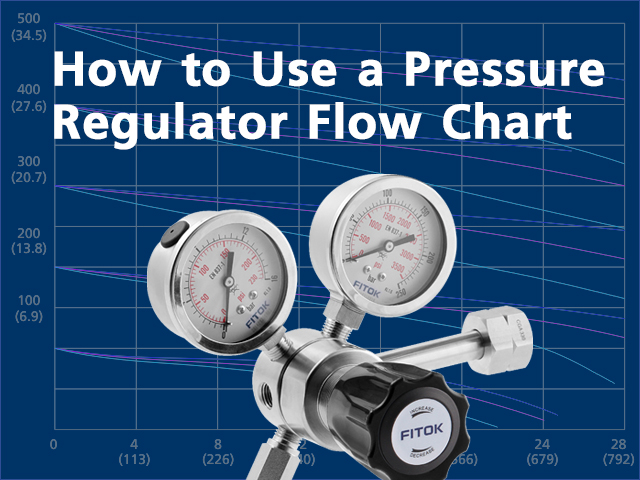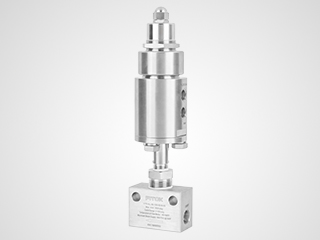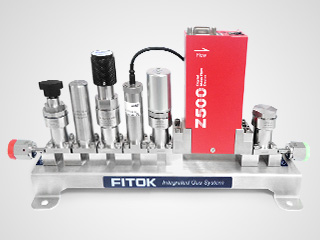Pressure Regulator Details (II) : How to Choose a Pressure Regulator
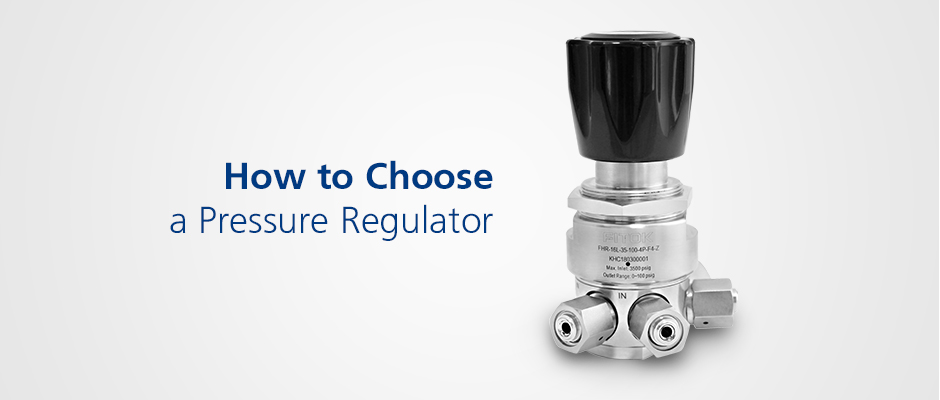
Pressure regulators play an important role in fluid systems for a variety of applications by reducing inlet pressure to a lower outlet pressure and keeping outlet pressure stable when inlet pressure fluctuates. Various factors need to be considered when selecting a pressure regulator, the most important of which include: flow, pressure, temperature, media and sensing mechanism.

Flow
The size of a pressure regulator is determined by the system flow. Selecting a properly sized pressure regulator facilitates its functional performance, and usually a larger pressure regulator allows for more reliable pressure control at higher flows. The following questions should be considered when selecting a pressure regulator: What is the maximum flow required? What is the flow variation range?
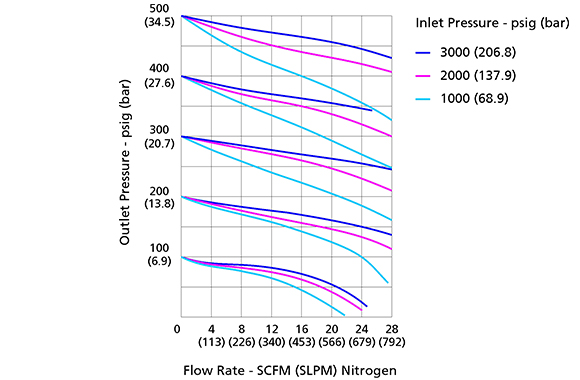
Figure 1 Flow Chart of FCR-1 Series Pressure Regulators

Pressure
Since the primary function of a pressure regulator is to reduce inlet pressure to a lower outlet pressure, it is critical to select a pressure regulator with proper maximum inlet pressure and outlet pressure control range. When the inlet pressure fluctuates significantly, and yet there is a higher requirement for accuracy and stability of outlet pressure, a dual-stage pressure regulator should be selected to reduce the Supply Pressure Effect (SPE), such as FITOK FCR-1D Series Dual-stage Diaphragm Regulators, with only 0.01% SPE (SPE is 1% when the inlet pressure is below 500 psig).
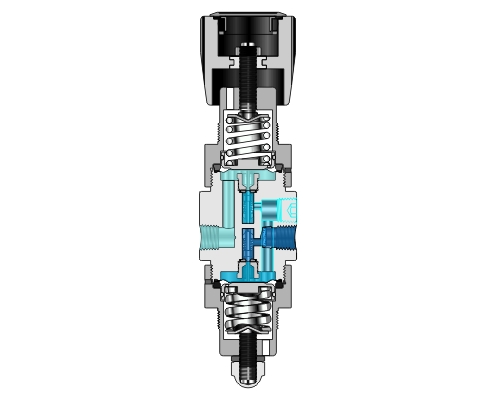
Figure 2 Dual-stage Diaphragm Regulators

Temperature
Pressure regulators are required to withstand expected operating temperatures, including ambient temperature, fluid temperature, and temperature changes due to the Joule-Thomson effect, which should be considered comprehensively when selecting a pressure regulator.

Media
Material compatibility between media and pressure regulators is critical as it determines the service life and performance of a pressure regulator. For example, when the medium is hydrogen, select pressure regulators made with FITOK enhanced -316/316L material in preference, whose Ni > 12% and Nieq ≥ 28.5%, thus achieving excellent resistance to hydrogen embrittlement.

Sensing Mechanism
Sensing mechanism is the component to separate the spring force from the fluid force. By sensing fluid pressure changes through the sensing mechanism, pressure regulators are able to respond to maintain the set pressure. Diaphragms and pistons are two main sensing mechanism types: diaphragm is more sensitive to pressure changes while piston is able to withstand higher pressure.
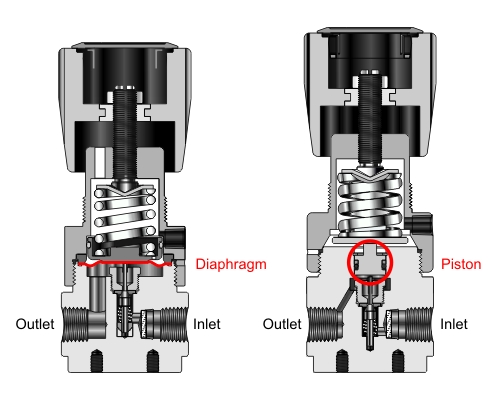
Figure 3 Diaphragm Regulators vs Piston Regulators
Due to the O-ring material, piston pressure regulators are not as clean and corrosion resistant as diaphragm pressure regulators. When there is a strict requirement for media cleanliness such as in the semiconductor and pharmaceutical industries, diaphragm pressure regulators are a more desirable choice. For example, FITOK FHR-1 Series High Performance High Purity Regulators with Hastelloy diaphragm sensing mechanism, can meet the requirement for media cleanliness in the semiconductor industry; while FCR-2 Series General Piston Regulators with piston sensing mechanism, can withstand inlet pressure up to 6,000 psig.
Conclusion
According to the requirements of the application scenario, full consideration of factors including flow rate, pressure, temperature, media and sensing mechanism will contribute to quick and right selection of pressure regulators.
For more information about pressure regulators, please see Pressure Regulator Selection Guide and Full Technical Catalog for Specialty Gas Application. If you have any questions, please contact us directly and We will reach you soon.
Related Articles:







.jpg)
.jpg)
 Back
Back 